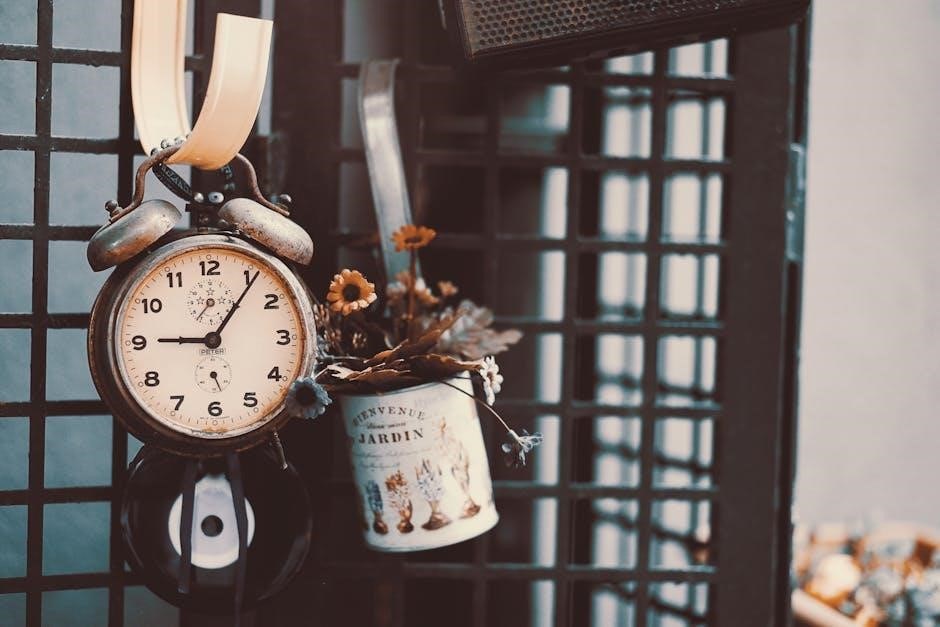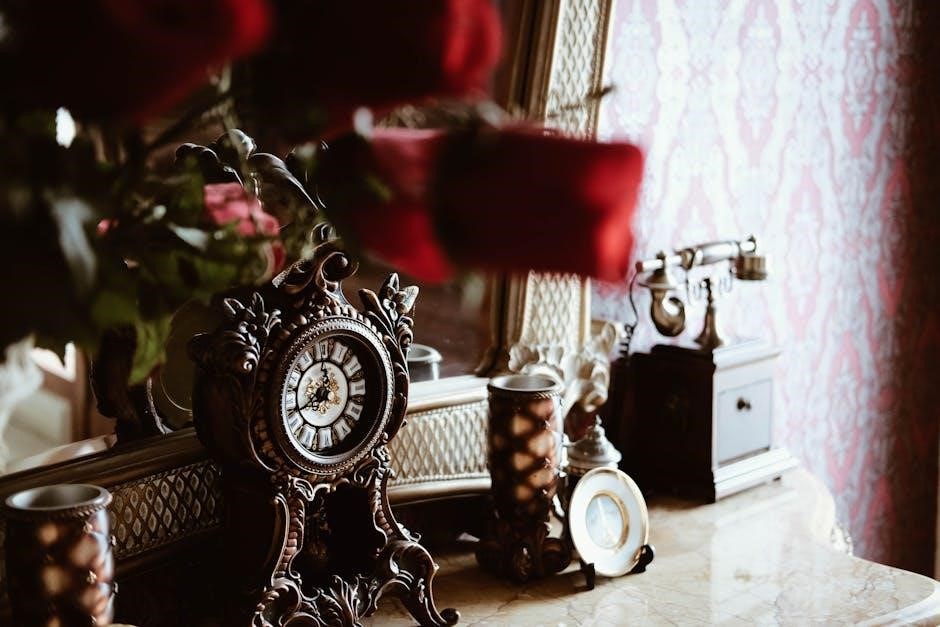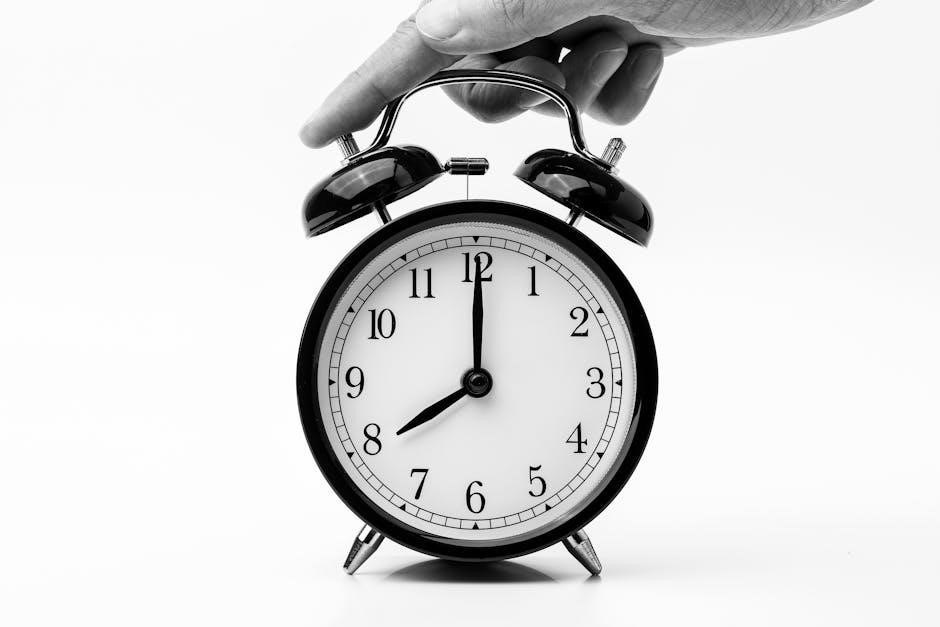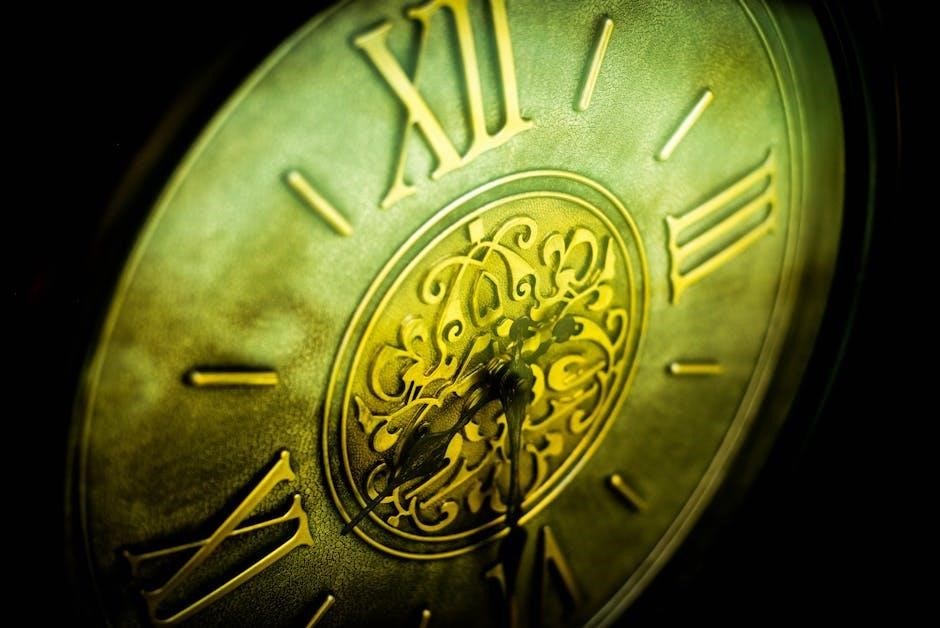
Antique clock value guide provides information on various types of clocks, including grandfather clocks, wall clocks, and table clocks, helping collectors understand their history and worth, using online resources and professional appraisers guidance effectively always.
Understanding the History of Antique Clocks
Antique clocks have a rich history dating back to the 15th century, with the first clocks helping people manage their time more effectively. The history of antique clocks is a long and complex one, with various periods and styles emerging over the centuries. Clocks were initially made by skilled craftsmen, with each clock being a unique piece of art. As time went on, clock making became more industrialized, with mass production of clocks becoming more common. Despite this, antique clocks still retain their unique charm and character, with many collectors seeking out rare and historic timepieces. The history of antique clocks is also closely tied to the development of technology, with advances in materials and manufacturing techniques leading to the creation of more accurate and reliable timekeeping devices. By understanding the history of antique clocks, collectors can gain a deeper appreciation for these beautiful and intricate timepieces, and better understand their value and significance. Online resources and historical records can provide valuable insights into the history of antique clocks, helping collectors to learn more about these fascinating devices.

Types of Antique Clocks
There are many different types of antique clocks, each with its own unique characteristics and features. Grandfather clocks, also known as longcase clocks, are a popular type of antique clock, characterized by their tall, freestanding design. Wall clocks, on the other hand, are designed to be mounted on a wall, and often feature intricate carvings and ornaments. Table clocks, also known as mantel clocks, are designed to be placed on a table or mantle, and are often smaller and more decorative than other types of clocks. Other types of antique clocks include cuckoo clocks, pendulum clocks, and carriage clocks, each with its own unique history and design. These different types of clocks were made by skilled craftsmen, using a variety of materials, including wood, metal, and stone. The type of clock can affect its value, with rare and unusual clocks often being more valuable than more common types. By understanding the different types of antique clocks, collectors can better appreciate their beauty and craftsmanship, and make more informed decisions when buying or selling these unique timepieces. Online resources can provide more information on the different types of antique clocks.

Antique Clock Identification and Value

Antique clock identification and value determination involves examining clocks’ mechanisms, materials, and markings to establish authenticity and worth, using online resources and expert guidance effectively always with great care and attention.
Factors Involved in Assessing the Value of an Antique Clock
Several factors are involved in assessing the value of an antique clock, including the clock’s age, rarity, condition, and provenance. The clock’s maker and the materials used in its construction are also important considerations. Additionally, the clock’s historical significance and its aesthetic appeal can impact its value. Online resources, such as auction records and price guides, can provide valuable information for determining the value of an antique clock. Professional appraisers can also provide expert guidance and help to identify the clock’s maker, model, and age. The clock’s mechanism, including its movement and escapement, can also impact its value. Furthermore, the clock’s restoration history and any repairs or modifications made to it can also be a factor in determining its value. By considering these factors, collectors and sellers can gain a better understanding of the value of an antique clock and make informed decisions when buying or selling. The value of an antique clock can fluctuate over time, making it essential to stay up-to-date with market trends and developments in the field of horology.
Online Resources for Antique Clock Identification and Price Guide
There are numerous online resources available for antique clock identification and price guide, including databases, forums, and websites dedicated to horology. These resources provide access to a vast array of information, including clock descriptions, prices, and images. Online databases, such as those found on auction websites, can be searched by clock type, maker, and model, allowing users to find specific information about their clock. Additionally, online forums and discussion groups can connect collectors with experts and other enthusiasts, providing a platform for sharing knowledge and seeking advice. Many websites also offer price guides and market trends, helping collectors and sellers to stay up-to-date with the latest developments in the antique clock market. By utilizing these online resources, individuals can gain a better understanding of their antique clock and make informed decisions when buying or selling. These resources can also help to identify rare and valuable clocks, and provide guidance on restoration and maintenance. Overall, online resources play a vital role in the world of antique clock collecting, and can be a valuable tool for anyone looking to learn more about these timepieces.

Antique clock value guide concludes with online resources and professional guidance helping collectors understand clock history and worth effectively always using databases and forums.
Importance of Professional Antique Appraisers Guidance
Professional antique appraisers play a crucial role in determining the value of antique clocks, as they possess extensive knowledge and expertise in the field. Their guidance is essential in helping collectors and sellers understand the true worth of their clocks. With many years of experience, professional appraisers can provide accurate assessments of the clock’s condition, rarity, and historical significance. They can also identify any potential flaws or restorations that may affect the clock’s value. Furthermore, professional appraisers have access to a wide range of resources, including databases and forums, which enable them to stay up-to-date with the latest market trends and pricing information. By seeking the guidance of a professional appraiser, collectors and sellers can ensure that they are making informed decisions when buying or selling antique clocks. Additionally, professional appraisers can provide valuable advice on how to care for and maintain antique clocks, which can help to preserve their value and longevity. Overall, the guidance of a professional antique appraiser is indispensable when navigating the complex world of antique clock collecting. Their expertise and knowledge can help to ensure that collectors and sellers achieve the best possible outcomes.
